
National selection of top producer of
poison and fertilizer
in Iran
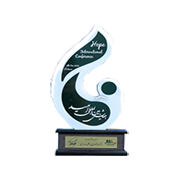
Omid International Conference
International Conferences Center
In Tehran
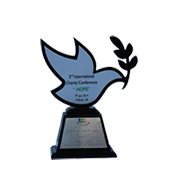
Omid Second International Conference
International Conferences Center
In Iran

Omid Third International Conference
International Conferences Center
In Iran

Omid Fourth International Exhibition
International Conferences Center
In Tehran
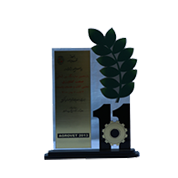
11th International Agricultural Industry
Exhibition
Machinery and related services
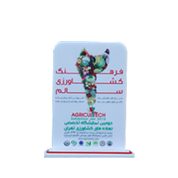
Second Specialized Agricultural Exhibition
The permanent location of
the Bustan fairs
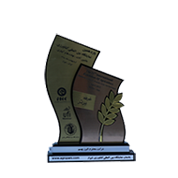
11th International Agricultural Fair
Premier Booth
In Iran

Sixth specialized exhibition
Tehran Agricultural Agencies
In Iran

National Award for Top
Manufacturing Unit
In Iran-gazvin

First place
Safir Cup Tournament
In Winter

Top Team
Ramezan Cup Tournament
TehraniMoghadam

Third place
Safir First Futsal Cup Tournament
itcup

The role of silicon and its application in plants
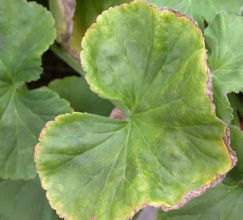
Silicon in plants increases the growth and yield of agricultural products, increases tolerance to abiotic stresses such as cold, drought, high and low temperatures, salinity and toxicity due to the accumulation of heavy metals such as aluminum, cadmium, arsenic and manganese and solar radiation. It also increases tolerance to biological stresses such as pests and diseases such as stem borer, caterpillars, psyllids and rice blasts, and powdery mildew. It also resists stem damage in cereal species such as rice and also sugarcane. Silica accumulates in the epidermal tissues of leaf and root cells in the form of silica gel. This layer causes mechanical stability, increased tolerance to stem damage and greater stability of grain-to-cluster attachment in some grain crops. Increasing the mechanical strength created by silicon increases the absorption of sunlight by the leaves of cereal species. The leaves become darker and firmer green and their aging process slows down. Hence, the ability of the photosynthesis process by the leaves and finally the growth processes increases. Silicon deposition in stems, leaves and various parts of spikes and seeds reduces cuticle transpiration, resulting resistance against lodging, damage, stress caused by high and low temperatures, intense sun and ultraviolet radiation and drought.

Silicon also affects the biological and chemical properties of soil, including:
- Reduces leaching of phosphorus and potassium in the soil,
- Reduces the mobility of heavy elements such as aluminum, iron and manganese,
- Improves soil microbial activity,
- Increases the stability of organic matter in the soil,
- Increases water holding capacity in soil,
- Increases water holding capacity in soil,
- Increases soil stability against erosion,
- It causes the weight of a thousand seeds to increase,
- Increases the storage of agricultural products,
- Causes to increase the crops
The application of silicon in agriculture, while leaving no residue in the crop and the environment, is considered as an effective factor in the integrated management program of plant pests and diseases. Silicon stops the activity of pests such as stem borer, brown and green caterpillars and spider mites.
Silica increases rice resistance to pests such as stem and leaf-eating worms.
In sugarcane, it increases the plant's resistance to the activity of various pod eaters.
In summer crops, it causes spider mite control.
The highest amount of silica in plants accumulates in epidermal cells, which increases the hardness and strength of plant tissue, which prevents the entry of young larvae into the stem.
The role of silicon in the absorption of other nutrients
In plants fed with silica fertilizers, a decrease in the severity of infection with a variety of plant diseases such as rice blast and grape blight and finally increase yield is observed. In some cases, reductions in root diseases caused by pythium and Fusarium due to silicon root uptake have been reported.
Because silicon deposits under the cuticle layer, it acts as a physical barrier to prevent fungal mycelium from entering the plant cell, eventually disrupting the fungal contamination process. Silicon, on the other hand, acts as a modulator of host plant cell resistance to disease. Research shows that feeding with silica fertilizers stimulates plant defense mechanisms by increasing the activity of chitinase, peroxidase and polyphenol oxidase.

The effect of silicon on the absorption of other nutrients
The presence of silicon in nutrient solutions affects the absorption and transport of macro and micro nutrients. Feeding with silica fertilizers increases the uptake of zinc in soil deficiency, especially if there is more phosphorus in the soil. Feeding with silica fertilizers reduces the uptake of phosphorus by the roots, as opposed to phosphorus transfer in wheat grains and in rice. Most plants use only about 30% of the phosphorus in phosphate fertilizers, provided the leaching is low. A mixture of active silicon fertilizers and phosphate fertilizers increases the efficiency of phosphate fertilizers by 40 to 60%.
One of the most important benefits of using silica fertilizers is reducing the damage caused by salt accumulation and soil salinity, and feeding with silica fertilizers reduces sodium uptake in rice, wheat and barley. In plant species affected by salinity stress, feeding with silica fertilizers reduces sodium uptake by reducing the permeability of the plasma membrane of leaf cells.
Silicate fertilizers are considered as an organic fertilizer due to the abundant natural resources of silica in the earth's crust and there is no need for a synthetic production process of these fertilizers in petrochemical plants.
Silicon is effective in maintaining the health of many plant species. Rice plant without silicon will not grow enough and in plants such as cucumbers, soybeans, strawberries, without silicon, their growth and development processes will be affected.
In sugarcane cultivation and in silicon-free soils, if silicate fertilizers are added, crop production will increase by 10 to 50%.
The use of silicate fertilizers in citrus orchards increases their growth rate by 30 to 80% and accelerates the ripening of fruits by two to four weeks.
Silicate fertilizers reduce the cracking of grapes and increase the sugar content of the fruit, as well as protect the plant against fungal diseases such as powdery mildew and sucking pests.
In strawberries, silicate fertilizers will cause significant root growth of 100 to 200%. It will also increase flower and fruit production, increase fruit sugar and increase the average yield by up to 35%.
Consumption of silica in rice also increases the number of spikes per cluster and the number of grains, the percentage of grain filling and ripe grains, and increases grain yield and quality. It also reduces stem decumbency and resistance to sucking pests and diseases.
As mentioned, the use of silica fertilizers while increasing crop yield, is effective in plant resistance to stress under salinity conditions.
The presence of silica and potash together in addition to intensifying the effect of each other, increases photosynthesis, increases the growth of terminal buds, increases the number and strength of stems, reduces decumbency in cereals, increases plant resistance to sucking insects, improves The size and shelf life of the fruit, especially in products such as strawberries, also reduces the toxicity of heavy elements. The use of liquid silica and potassium fertilizers due to the increase in mechanical strength, gives a vertical position to the leaves and stems, which reduces the percentage of decumbency and increases the penetration of light into the shade of plants. Therefore, the plant can do more photosynthesis and it is possible to plant rice in higher densities, which will ultimately increase the yield of the most important component in rice, which is the same number of spikes per square meter, and the amount of nitrogen fertilizers can be used. Achieving higher production potential without causing decumbency or susceptibility to disease.
Among the cases that can indicate a lack of silica in the plant, the following can be mentioned:
Withering of plant stems and leaves
Decreased photosynthetic action
Decreased performance
Decreased plant growth
Rising disease in the plant
Plant rot


Studies have also shown that as the amount of silica decreases, the plant absorbs carbon dioxide and the pores close like water stress and photosynthesis stops.
To eliminate the symptoms of silicon deficiency in the plant and increase the yield of the product, the use of the following silicate fertilizers from the products of AlborzBehsam Company is recommended:
1- Potassium silicate powder which causes:
-Increase the yield and fertility of a variety of crops such as cereals, especially rice, as well as vegetables and fruit trees
-Increased resistance to environmental stresses such as extreme heat, cold, dehydration and salinity
- Increase the shelf life of post-harvest products
-Increasing the appearance quality in terms of taste and fruit

2- Phytomax liquid potassium silicate fertilizer which causes:
Increase the yield and fertility of a variety of crops such as cereals, especially rice, as well as vegetables and fruit trees
-Increased resistance to environmental stresses such as extreme heat, cold, dehydration and salinity
- Increase the shelf life of post-harvest products
-Increasing the appearance quality in terms of taste and fruit

3- Suspension fertilizer Phytomax containing sulfur, copper and silicon, which causes the following effects:
- Creating resistance in plants in heat stress conditions in summer and winter cold
-Increase the taste of fruits and vegetables and dramatically the weight and volume of fruit
-Increasing the yield of crops, gardens and greenhouses
- Increased rooting, especially in the early growing season of plants
- Effective improvement of saline and alkaline soils
- Stem strength and reduced decumbency in plants
